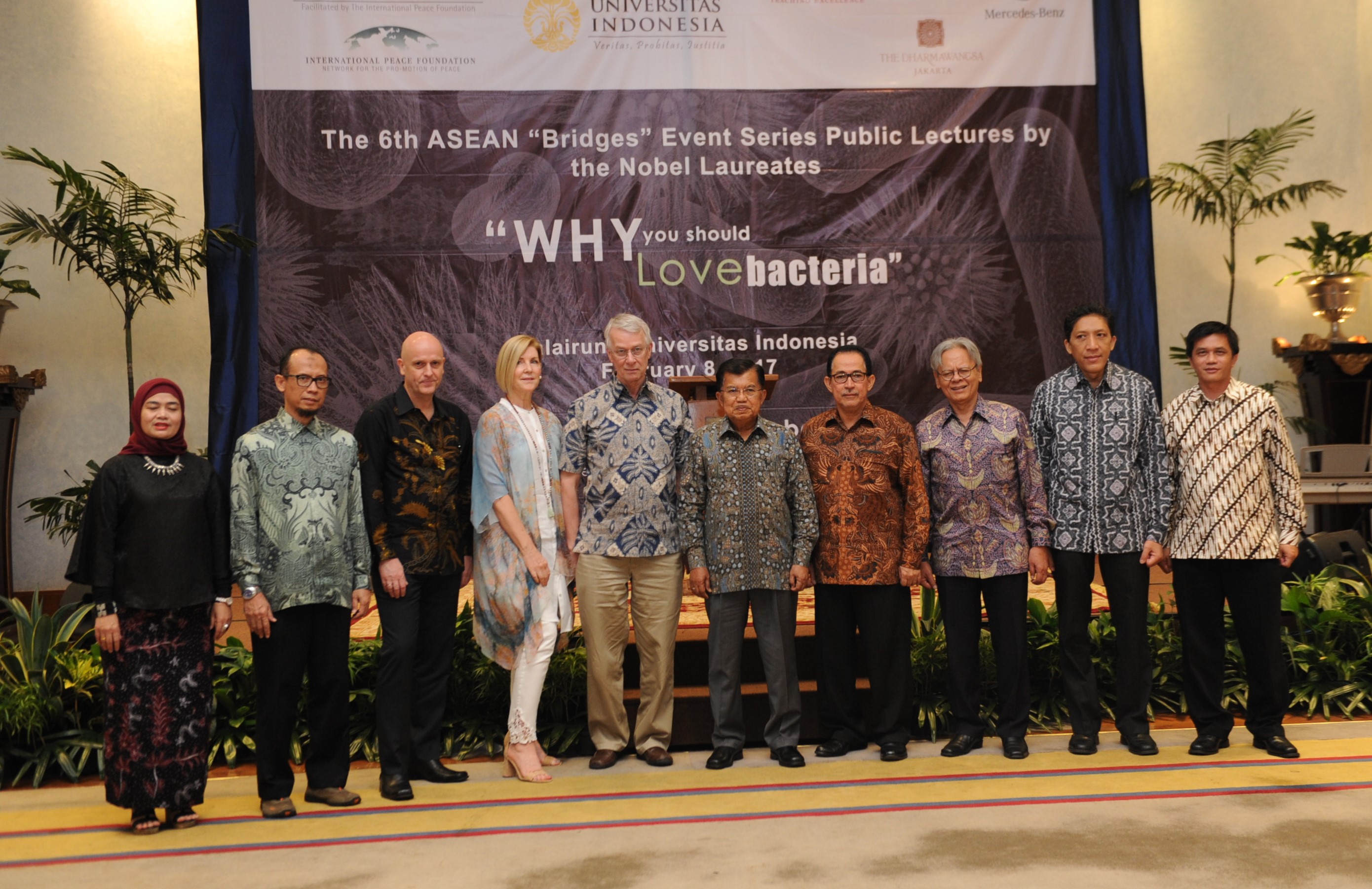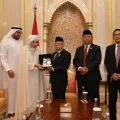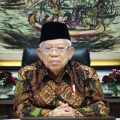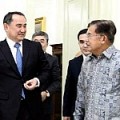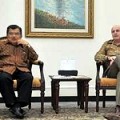Jakarta-wapresri.go.id. Vice President Jusuf Kalla said, younger generation should emulate the Nobel laureates in their hard work in reaching high achievement for humanity.
“The presence of Nobel laureates such as Dr. Roberts is very important to us and will be beneficial to our young people as this will inspire us on how to reach high achievement which is internationally recognized and accepted,” said Vice President at the Gala Dinner with Dr. Sir Richard J. Roberts, a Nobel laureate in physiology and Medicine, at the Dharmawangsa Hotel in Jakarta on Wednesday (Feb. 8).
Dr. Roberts is a biochemist and molecular biologist from the UK who won the Nobel Prize in 1993. He came to Indonesia to give a public lecture at the University of Indonesia in the 6th ASEAN-Bridges Dialog Series initiated by the International Peace Foundation (IPF) to encourage dialogues on peace among ASEAN community.
Dr. Roberts during the day had delivered a public lecture titled “Why You Should Love Bacteria” in which he gave a presentation on the bacterial world that can be both beneficial and disastrous to human.
The Vice President believed, the results of the study and the dialogue can be a stepping stone for academics and the young generation of Indonesia in conducting research that is useful to humanity.
“A lecture by Dr. Roberts will be a stepping stone for us in doing research that is important for humanity. This is indeed very useful for our younger generation, universities, and our country in the future,” he said.
The Vice President then wished that this would not only be a public lecture, but also an initial attempt to establish cooperation among academics and scientists to promote humanity.
Earlier, on the same occasion, the Rector of the University of Indonesia Muhammad Anis said, research in the field of medical science in Indonesia has significantly developed recently.
“Indonesia has developed several vaccines such as hepatitis, HIV, and TB which is a remarkable achievement for Indonesia. We should be thankful to the government and industry for their support,” said Anis.
Anis also appreciates the dialogue on science as it is deemed vital to develop a common understanding and good relations between the peoples around the world.
“Science is believed to be a medium that can unite people in different countries and different parts of the world,” he argued.
Also present at this event were academicians of the University of Indonesia, representatives of research institutions, diplomats from some friendly countries, and Indonesian students.

